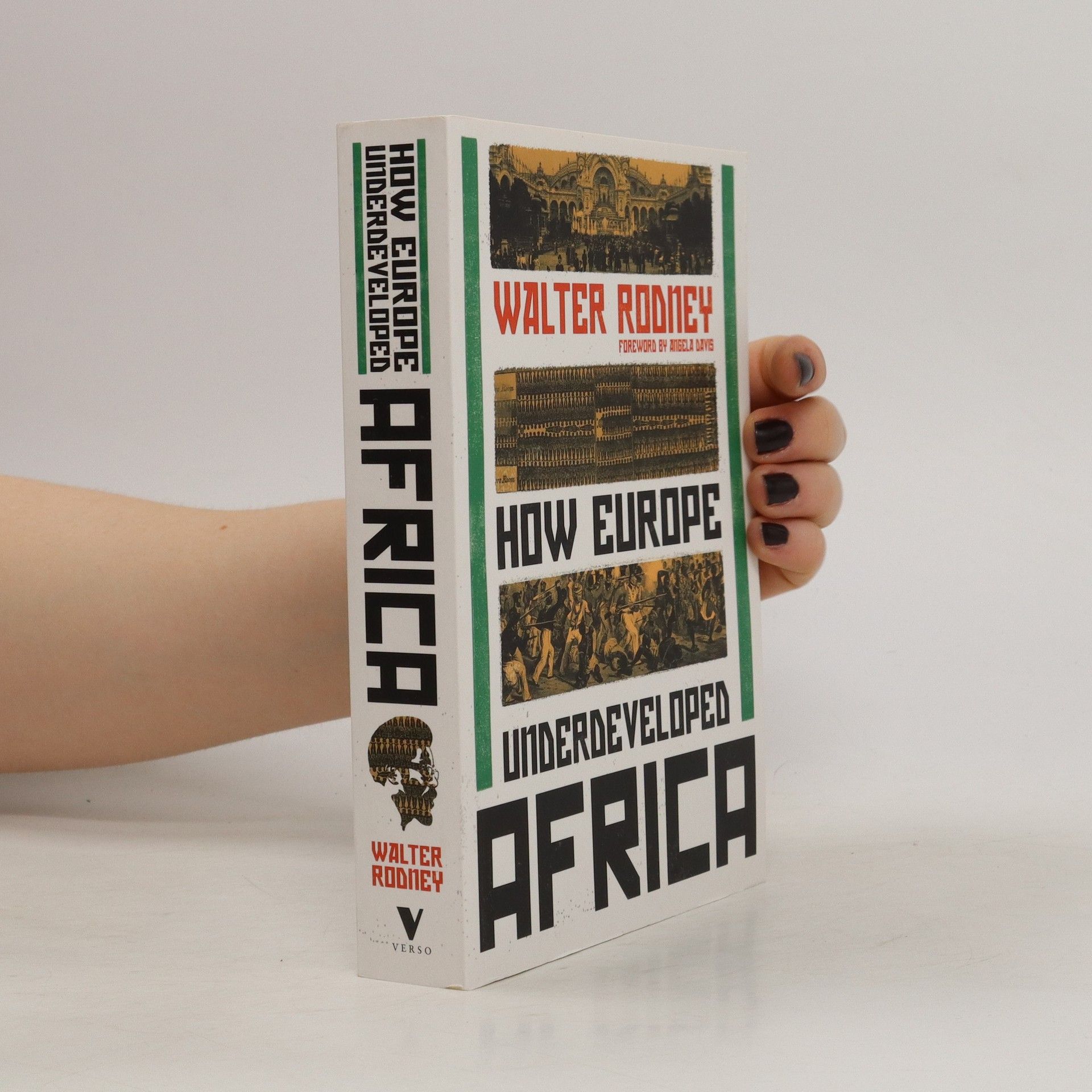This edition published by Verso 2019 First published by Bogle-L'Ouverture Publications 1969.
Walter Rodney Boeken
Walter Rodney ontpopte zich tot een van de toonaangevende denkers en activisten van de antikoloniale revolutie, die bewegingen in Noord-Amerika, Afrika en het Caribisch gebied leidde. Op elke locatie werd Rodney een brandpunt voor het Black Power-activisme van de arbeidersklasse. Zijn intellectuele bijdragen vormden een generatie in internationaal politiek denken, en zijn nalatenschap resoneert tot op de dag van vandaag in het antikoloniale discours.





How Europe Underdeveloped Africa
- 416bladzijden
- 15 uur lezen
The classic work of political, economic, and historical analysis, powerfully introduced by Angela Davis In his short life, the Guyanese intellectual Walter Rodney emerged as one of the leading thinkers and activists of the anticolonial revolution, leading movements in North America, South America, the African continent, and the Caribbean. In each locale, Rodney found himself a lightning rod for working class Black Power. His deportation catalyzed 20th century Jamaica's most significant rebellion, the 1968 Rodney riots, and his scholarship trained a generation how to think politics at an international scale. In 1980, shortly after founding of the Working People's Alliance in Guyana, the 38-year-old Rodney would be assassinated. In his magnum opus, How Europe Underdeveloped Africa, Rodney incisively argues that grasping "the great divergence" between the west and the rest can only be explained as the exploitation of the latter by the former. This meticulously researched analysis of the abiding repercussions of European colonialism on the continent of Africa has not only informed decades of scholarship and activism, it remains an indispensable study for grasping global inequality today.
Decolonial Marxism
- 304bladzijden
- 11 uur lezen
A previously unpublished collection of Rodney's essays on Marxism, spanning his engagement with of Black Power, Ujamaa Villages, and the everyday people who put an end to a colonial era
Walter Rodney, ein einflussreicher marxistischer Historiker, beleuchtet in seinen Schriften die Verbindungen zwischen Kolonialismus, Sklaverei und Rassismus in Afrika und der Karibik. Sein Leben war geprägt von der Überzeugung, dass Intellektuelle aktiv zur Selbstemanzipation der Massen beitragen sollten. Der Band „Dekolonialer Marxismus“ versammelt bislang unveröffentlichte Texte, die sich mit Rasse, Klasse und der antikolonialen Geschichtsschreibung auseinandersetzen. Rodney hinterlässt ein Erbe der ständigen Neuinterpretation des Marxismus und des Respekts vor dem Potenzial der Selbstbestimmung.
Wie Europa Afrika unterentwickelte
Mit Beiträgen von Bafta Sarbo, Peluola Adewale und René Arnsburg
Das Werk analysiert die Auswirkungen von Sklaverei und Kolonialismus auf die Geschichte des internationalen Kapitalismus und argumentiert, dass die »Fehlentwicklung« Afrikas kein natürliches Phänomen, sondern das Ergebnis imperialistischer Ausbeutung ist. Diese Erkenntnis ist bis heute relevant und hilft, die bestehende Kluft zwischen Afrika und Europa sowie die globale Ungleichheit zu verstehen. Rodney widerlegt den Irrtum, dass die ökonomische Ausbeutung Afrikas auf rassistischen Einstellungen der Herrschenden in entwickelten kapitalistischen Ländern beruht. Stattdessen zeigt er, dass Unterdrückung aus Ausbeutung resultiert. Dieses Verständnis ist entscheidend für die Analyse von Rassismus und dessen Rolle im Kapitalismus. Das Buch erscheint unter einem neuen Titel und in einer vollständig neuen deutschen Übersetzung. Ergänzend werden Texte von Bafta Sarbo über Rodneys Leben und politisches Wirken sowie eine Analyse des Imperialismus und des Widerstands in Afrika heute von nigerianischen Sozialisten und ein Beitrag über Rodney, die permanente Revolution und den Kampf für Sozialismus von René Arnsburg veröffentlicht.